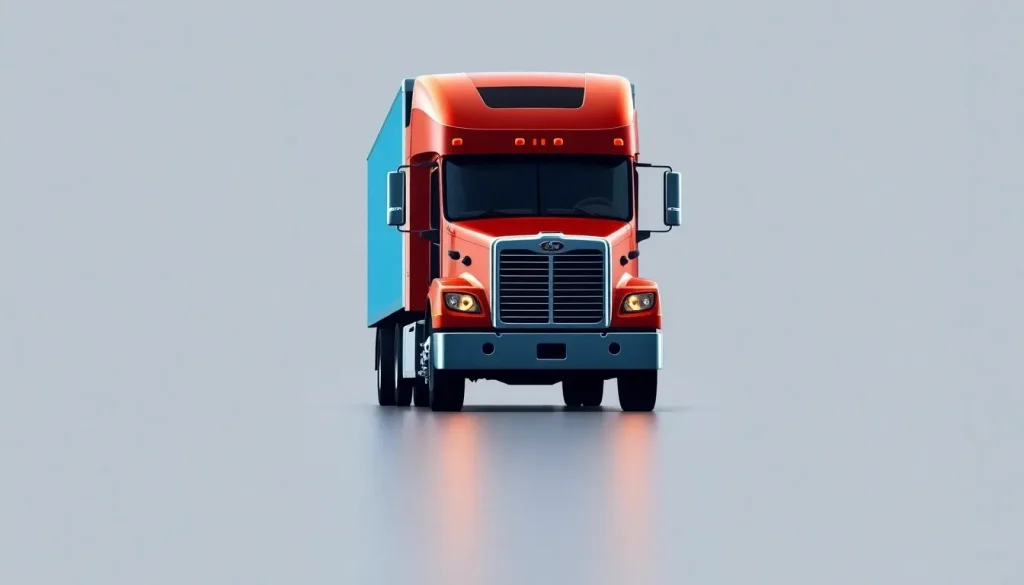U.S. updates CDL regulations for non-citizens

The recent tightening of commercial driver's license (CDL) regulations by the U.S. Department of Transportation (DOT) has sparked significant discussion within the trucking industry. The new rules primarily target non-citizens, potentially reshaping the landscape for many drivers and affecting freight capacity across the nation. Understanding these changes is crucial for stakeholders in the transportation sector.
At the forefront of these changes is an emergency final rule that restricts non-citizens from obtaining CDLs. This regulation could lead to the removal of approximately 194,000 drivers from U.S. highways, raising questions about the impact on freight capacity and safety on the roads.
Understanding the New Regulations for Non-Citizens
The DOT's new rule allows only non-citizen drivers holding H-2a, H-2b, or E-2 visas to apply for a CDL, which reflects a significant shift in policy aimed at enhancing road safety and accountability. Additionally, the rule stipulates that applicants must appear in person for each renewal of their CDL, ensuring a more thorough verification process. The DOT emphasized that the previous regulatory framework lacked sufficient safety margins to protect the public.
In light of multiple fatal accidents involving non-domiciled CDL holders, including a high-profile incident in Florida, DOT Secretary Sean Duffy underscored the urgency of these changes. The new measures not only aim to enhance safety but also hold states accountable for the issuance of non-compliant licenses.
The Economic Impact of Restricting Non-Domiciled CDLs
According to the Federal Motor Carrier Safety Administration (FMCSA), there are approximately 200,000 non-domiciled CDL holders in the U.S., making up about 5% of the total active CDL population, which numbers around 3.8 million. With the implementation of this rule, it's anticipated that only 6,000 non-domiciled CDLs will be issued moving forward, resulting in a significant decrease in active drivers.
- Projected loss of 194,000 drivers from the market.
- Only 6,000 new non-domiciled CDLs anticipated to be issued.
- Potential for increased job opportunities for domestic drivers.
Despite concerns about potential disruptions in freight capacity, Secretary Duffy reassured that there are ample qualified American drivers available to meet industry demands. The FMCSA's analysis concluded that the freight market has historically shown flexibility and resilience in adapting to regulatory changes and external pressures.
California Under Scrutiny for CDL Compliance
During a press conference, Secretary Duffy specifically criticized California’s licensing practices, noting that approximately 25% of non-domiciled CDLs issued by the state were found to be non-compliant with federal standards. This prompted Duffy to threaten withholding $160 million in federal highway funding unless California takes corrective action within the next 30 days.
In response, California Governor Gavin Newsom's office defended the state's practices, asserting that California's commercial license holders have a fatal crash rate nearly 40% lower than the national average. This statement highlights the ongoing tension between federal and state authorities regarding licensing standards.
- California issued a significant number of non-compliant licenses.
- Other states mentioned include Colorado, Pennsylvania, South Dakota, Texas, and Washington.
- Texas has already suspended the issuance of non-domiciled CDLs following Duffy's announcement.
Implications for the Trucking Industry
The tightening of CDL regulations has raised several implications for the trucking industry. While the intent is to enhance safety, the potential loss of a large number of drivers could lead to a labor shortage in the sector. This may further exacerbate existing challenges in meeting freight demand, especially in a recovering economy.
Industry groups, including the American Trucking Associations and the Owner-Operator Independent Drivers Association, have expressed support for the new regulations, viewing them as a necessary step toward ensuring safer roads. However, the industry must now adapt to the reduced number of available drivers and consider strategies to attract and retain domestic talent.
Future Considerations and Adaptations
As the trucking industry braces for the effects of these new regulations, several strategies could be beneficial in mitigating the impact:
- Investing in driver training programs to enhance the skills of domestic drivers.
- Implementing competitive compensation packages to attract new talent.
- Utilizing technology to improve operational efficiency and reduce reliance on driver numbers.
Furthermore, ongoing dialogue between federal and state authorities will be crucial in addressing compliance issues and ensuring that safety standards are met without compromising the efficiency of the freight market.
To gain more insights into the challenges facing non-citizen drivers and the new regulations, you can watch this informative video that discusses the recent changes in detail:
Conclusion
The recent changes to CDL regulations for non-citizens are poised to have far-reaching effects on the trucking industry. As stakeholders navigate this new landscape, it will be essential to balance safety concerns with the industry's need for qualified drivers. The conversation surrounding these regulations is likely to continue evolving, as both the federal government and individual states work towards compliance and safety standards that serve the public interest.




Leave a Reply